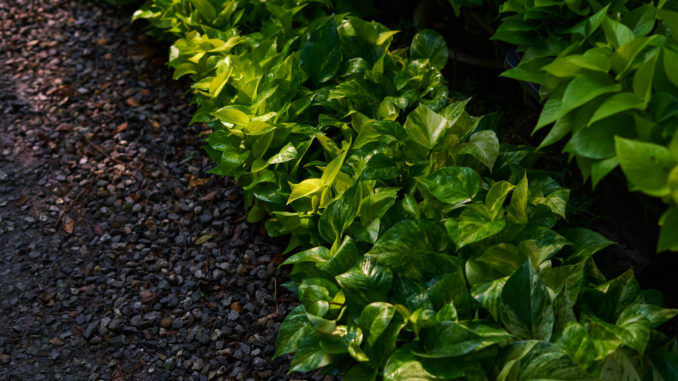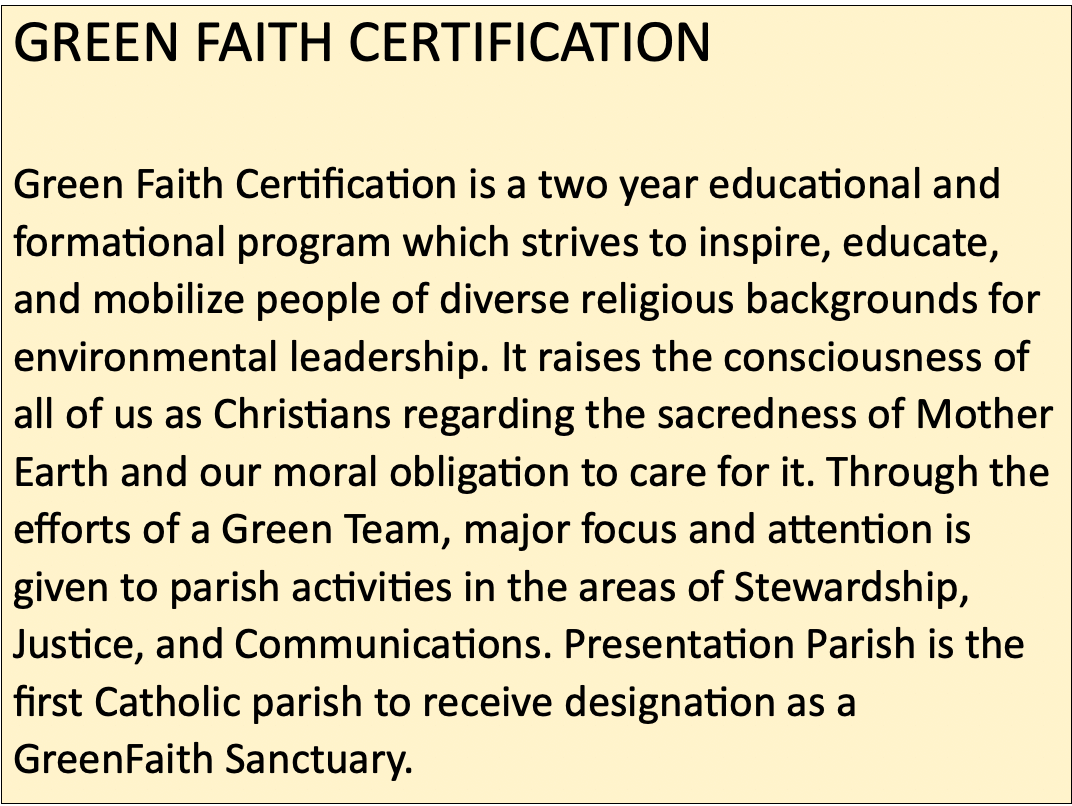
Tempting as it may be to begin by creating a list of possible activities what is really of major importance is raising the consciousness of parishioners to the environmental issues and challenges of our times. Before “doing something” we need facts. We need to be educated in understanding how intimately we are connected with Mother Earth. At the same time, we need to recognize that we are also the very ones who are contributing to the devastation of her vital resources.
We need to be formed in new attitudes and behavior patterns for sustaining a healthy and viable Earth. Parishioners would begin to recognize that protecting the environment is a religious matter that has moral and ethical implications. Only then will we see that we have moral responsibilities for taking specific actions. Such initiatives will involve us personally as individuals and as members of a parish community. Caring for God’s good Earth is part and parcel of our Catholic faith.
Education will include different approaches for becoming more informed about environmental issues and new ways of sharing that information with one another. Many worthwhile resources are available today on the internet, as well as attractive and well-researched films, DVDs, and study programs for parishes and appropriate sharing discussion materials for Small Christian Communities. Enlightened education dispels false myths.
(NCR Article on Presentation for Green Faith)
For this reason, it would be very helpful for parishioners to become acquainted with recent papal and Church statements, Catholic social justice principles, and biblical insights on the environment. The connection between faith and ecology could also provide a promising subject for discussion and action with sister parishes of our deanery in the New Energies Project promoted by the Archdiocese of Newark.
Once having established an appropriate educational and formational base, then workable action plans, best suited to the culture and capabilities of our parish, will follow. The parish has already undertaken a number of excellent initiatives like solar panels on the roof of the church, eco-friendly and energy-efficient bathroom facilities, lessening the use of Styrofoam and plastic water bottles and the installation of beehives on church property.
We have completed the necessary criteria and guidelines for full accreditation in the GreenFaith Certification Program and have been named a GreenFaith Sanctuary. Other initiatives are in process:
- A parish wide recycling plan
- An ecological assessment and review of our building, plant, and grounds
- Calculation of our parish “carbon footprint”
- Substitution of water pitchers for plastic bottles at parish meetings
- Becoming more informed about the privatization of water
- Use of compact fluoride light bulbs through the parish plant and rectory
- Inventory of materials used for cleaning in the parish and pesticides son parish property

Perhaps one of the most challenging personal recommendation for all is that we try to adopt a lifestyle that is more consistent with the suggestions already made, i.e. one which is based on simplicity, moderation, and personal disciple. This is truly reflective of the Gospel teaching and practice of Jesus. While we have been greatly blessed by the rich resources and bounty of our nation, we must also confess that it is often our consumer-driven ways that result in the impoverishment of those whose natural resources are being overused or even destroyed. A statistic that should shock all of us is that of the seven billion people in the world today, one billion live on less than two dollars a day.
How much of that is attributable to an over-indulgent use of the natural resources of our land to the detriment of the poor and disadvantaged? A slogan of three words may be helpful: REDUCE, REUSE, RECYCLE.
Questions for Discussion:
1. In your opinion, what is the best way to raise the consciousness of parishioners to the importance of environmental issues and to ways of dealing with them?
2. Why do you think there is resistance on the part of some people when there is mention of any discussion about religious responsibilities, or even moral implications of environmental issues?
3. In what ways can we change our lifestyles to offset the excessive or unreasonable use of our natural resource like, oil, water, or electrical energy?
4. How has the reading of this booklet helped you become more aware of the religious and moral implications of caring for creation?
